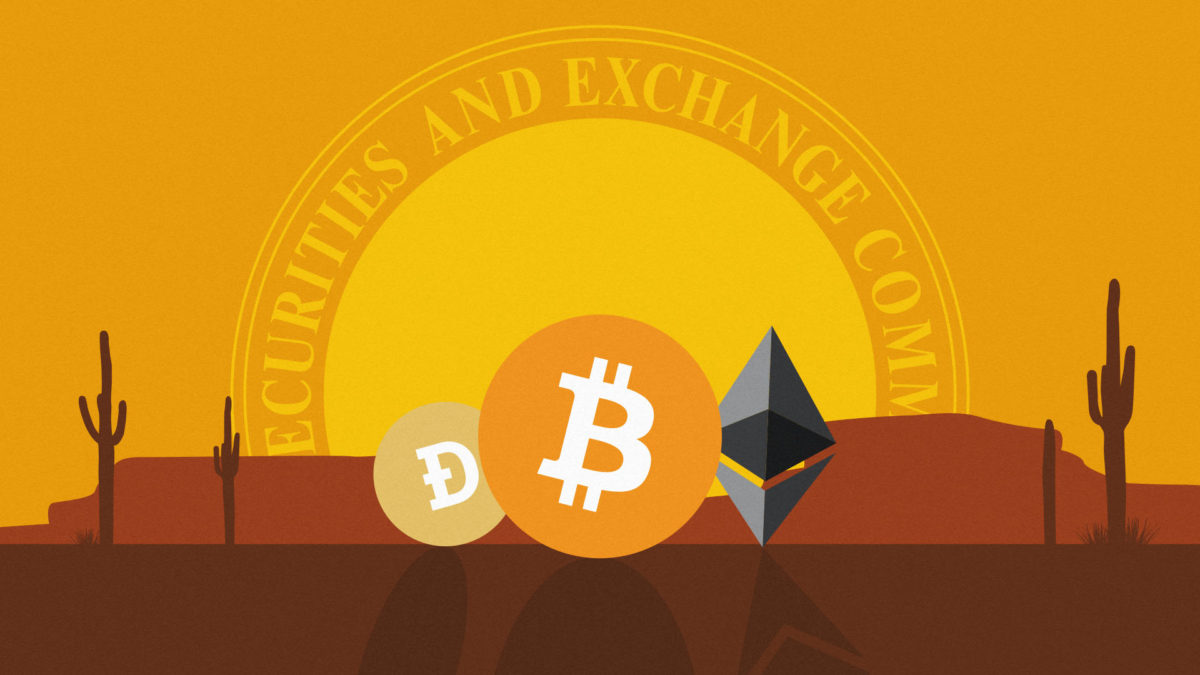SEC chair Gensler sticks to ‘Wild West’ shtick in Congress crypto testimony

US Securities and Exchange Commission (SEC) chair Gary Gensler reiterated pleas for more safeguards in crypto during a marathon four-hour testimony before the House Financial Services Committee this week.
“I don’t think that we have yet enough investor protection in the crypto finance, issuance, trading, or lending areas,” said Gensler, echoing previous statements made in recent months.
Gensler (63) took over the SEC in April. Since then, he’s often equated the cryptocurrency industry to the “Wild West” due to the space’s loose regulations.
“Frankly, at this time, it’s more like the Wild West or the old world of ‘buyer beware’ that existed before the securities laws were enacted,” said Gensler in his opening statement.
“This asset class is rife with fraud, scams, and abuse in certain applications. We can do better.”
To resolve this, Gensler proposes that all crypto projects and platforms must register with the SEC.
Gensler also repeated his warning to crypto exchanges. There’s only a “remote chance” that platforms listing hundreds of tokens have not listed securities, he explained.
“Investors get to choose what risks they take, as long as it’s based upon full and fair disclosure of the issuers,” said Gensler, adding that his job is not to rate investments.
Gensler then addressed decentralized finance (DeFi) applications and offshore crypto exchanges.
These entities claim to not operate in the US. Yet, they may be accessible to US investors through a VPN. They lack robust investor protections, he said.
Binance and FTX are two notable offshore crypto exchanges to which Gensler was likely referring.
SEC’s conflicting messages worry lawmakers
During Gensler’s testimony, Committee Chair Maxine Waters expressed concern about conflicting messages from the SEC.
Waters worries that SEC rules favor institutional investors with large amounts of capital and access to boutique research.
She noted Trump-era reductions in headcount at regulatory agencies like the SEC.
The long-serving US Representative contrasted accredited investments with retail opportunities, especially Main Street investors who read financial information on social media.
Law experts at Harvard University had shared similar concerns in a February report on the Reddit-originated GameStop promotion.
Its authors recommended that regulators study the unintended negative consequences of rules meant to protect retail investors.
SEC’s Gensler wants to protect crypto investors
Representative Patrick McHenry signed a letter this week to demand Gensler clarify his “concerning and apparently self-contradicting public statements” regarding the SEC’s approach to regulating digital assets.
Currently, crypto accounts for less than 2% of the $110 trillion worth of assets regulated by the SEC.
But McHenry wants Gensler to disclose whether the SEC has made closed-door determinations regarding the classification of certain cryptocurrencies as securities.
“If the Commission does in fact determine whether individual crypto assets are securities in a non-public forum, please provide such analysis and explain why the Commission has not made these analyses public,” said McHenry to Gensler.
Gensler has until October 19 to explain, McHenry says.
During Gensler’s four-hour testimony, he said that Congress “painted with a broad brush for the definition of security,” referring to the Congress’ inclusion of dozens of examples of securities in the Securities Act of 1933.
Genslar said that “that definition of security protects the public against fraud. And they also wrote in other laws for the Commodity Futures Trading Commission to have authorities. And I think that coordination, in working with Congress, we can fill some gaps around stablecoins in the banking regulatory regime.”
Representative Tom Emmer asked Gensler what would happen if Gensler were to designate a stablecoin as a security.
“Well, if they were to come in and actually register with us, then those investors get the benefit of our securities laws. Right now, they don’t have the benefit of that — that the basic bargain is that we protect people against fraud and manipulation in our capital markets.”
“They’re not getting that right now. It’s falling short, and people are going to get hurt.”
Technology neutral but not policy neutral
Representative Ritchie Torres asked Gensler about the systemic risks of stablecoins.
Gensler responded: “I think the $125 billion of stablecoins that we have right now are like the poker chips at a casino,” (our emphasis).
“And I think they create risk in the system ⏤ that we have digital lending, crypto lending, crypto trading ⏤ that, yes, I do think that if this continues to grow (and it’s grown about 10 fold in the last year), it can present those systemic-wide risks.”
Gensler, who spent seven years as chair of the Commodity Futures Trading Commission (CFTC), generally maintained that cryptocurrencies are highly speculative assets.
Cryptocurrencies are still neglected as units of account and mediums of exchange — except by bad actors (i.e. the Colonial Pipeline hackers), Gensler claimed.
Regarding the ICO mania of 2017, he explained many of these cryptocurrencies were and are unregistered securities. They lacked the required disclosures and market oversight.
The SEC maintains jurisdiction over these security tokens per the Securities Act of 1933 and subsequent Supreme Court cases.
Read more: [SEC hits Coinbase partner Circle with subpoena ahead of going public]
The SEC is also in ongoing discussions with other agencies (the Federal Reserve, Treasury, Comptroller of the Currency, and CFTC) regarding crypto rulemaking.
Bitcoin — Satoshi Nakamoto’s original creation — is a true innovation in payments technology, Gensler affirmed to lawmakers.
[H/T: CoinDesk]
